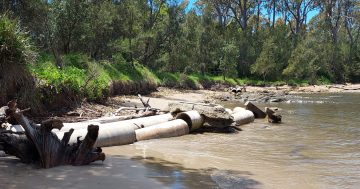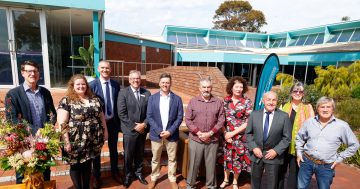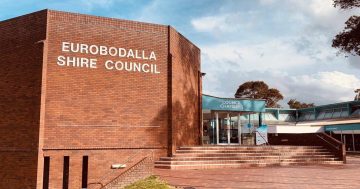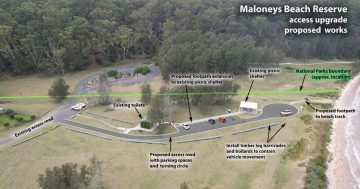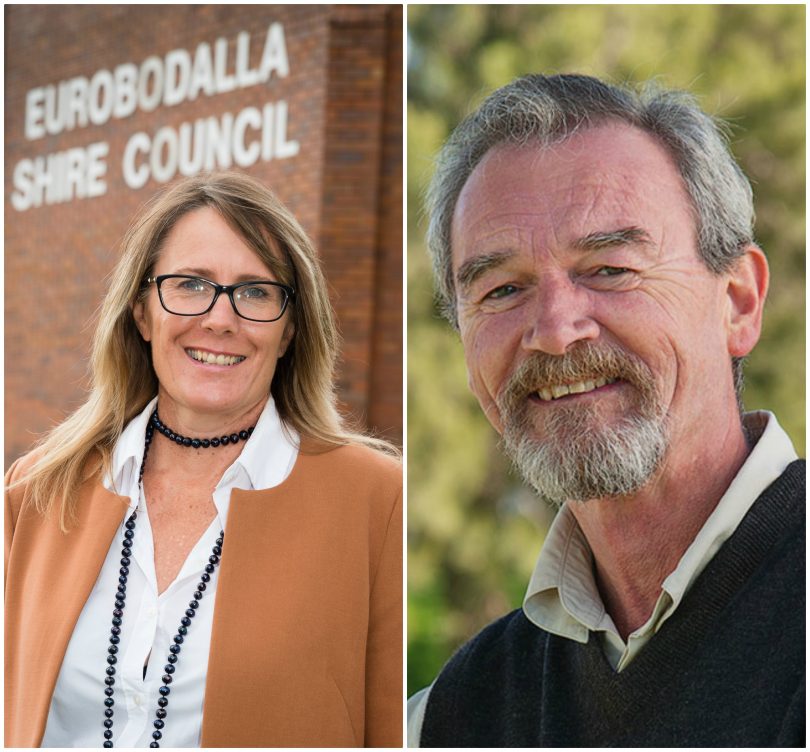
Mayor Liz Innes and Cr Pat McGinlay. Photos: Supplied. Design: Ian Campbell.
The plug has been pulled on the live streaming of public addresses to Eurobodalla Shire Council amid cries of cover-ups, lack of transparency, and a winding back of democracy and free speech.
Defending the move, Mayor Liz Innes says she is hoping the change will allow for a deeper more balanced presentation of Council issues and meeting agenda items.
“My experience is that generally, the members of the public who come and address the public forum are the ones not entirely happy with what’s being put forward,” Cr Innes says.
“And it can be argued that if members of the wider community are only relying on the live stream that they are not getting the whole picture.”
The change in Code of Meeting Practice was approved seven votes to two at yesterday’s Council meeting; Cr Pat McGinlay and Cr Anthony Mayne the only two dissenting voices – apart from the eight community members who addressed Council.
As reported earlier, the change was flagged on March 26 and placed on extended public exhibition until May 15.
In proposing the new Code, General Manager Dr Catherine Dale sought to bring the Eurobodalla in line with advice from the Office of Local Government (OLG). In her report to Councilors, Dr Dale points to the OLG’s directive to promote “more accessible, orderly, effective and efficient meetings and to provide councils with the tools to achieve these outcomes.”
Cancelling the webcast/live stream of the public forum prior to a Council meeting was one way Eurobodalla set out to achieve that.
During the submission period, the draft Code drew submissions from 13 members of the public. According to Cr McGinlay 11 of those argued strongly for the retention of the webcast.
“The move to end live streaming is very disappointing and very dispiriting,” Cr McGinlay says.
“It’s pathetic, point seven of our Community Strategic Plan talks about being an engaged and connected community who works together to achieve goals and what we are doing is making it more difficult for the community to engage and feel connected to Council.”
Mayor Innes disagrees and points to a level of engagement prior to any given decision that includes public meetings, workshops, and a written submissions process; on top of direct communication between the community and councilors via emails, phone calls and meetings.
“The other thing that really weighed heavily on my mind is that over the last 18 months I have seen a deterioration of behaviour from some of the presenters that have come into Council,” Cr Innes says.
“I have seen cases where members of our staff have been defamed with no opportunity to respond at that time, I have seen other members of the community harassed, I have seen cases where inadvertently people have put out confidential information.”
Cr Innes suggests that the risk of legal action following such instances is too great for ratepayers to bear.
Increasing levels of frustration are evident in community addresses according to Cr McGinlay but he says it’s a matter that could be addressed by good meeting facilitation by the Mayor.
“You do get the odd person who does cross the line but this is a real live world we live in, people will do that, we’ve had councilors do that,” Cr McGinlay says.
“What she [the Mayor] is saying is – I can’t manage this as the chair of the meeting so we are going to stop the whole thing.
“I don’t think it’s right to throw out the opportunity for the broader community because of the few exceptions who can abuse or misuse the time.”
While councilors have a code of conduct and behaviour to abide by, the Mayor says the same formal structures and fallbacks can’t be put in place for members of the public when addressing council.
“This subject came up for discussion at the recent country mayors’ meeting I attended in Sydney,” Cr Innes says.
“I have a feeling that other councils will start to experience this exposure [and need to consider the future of their own live streams].”
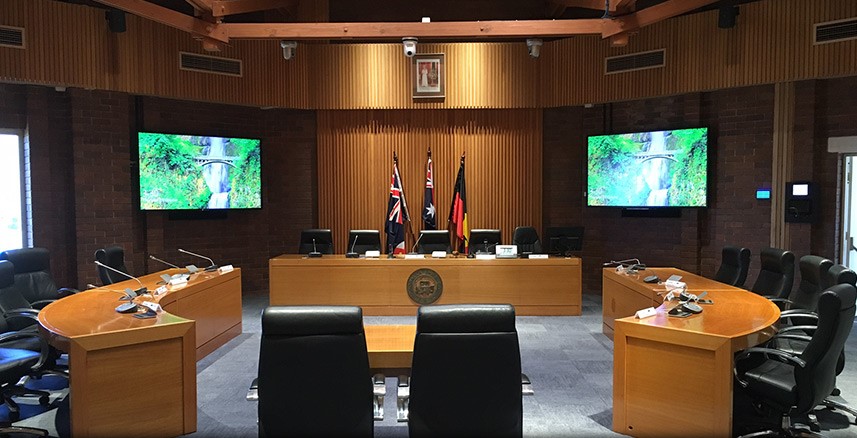
Eurobodalla Shire Council Chambers at Moruya. Photo: integrateav.com.au
While the webcast of the public forum has ended, council meetings, however, will continue to be live streamed. Anyone wanting to speak at Council on an agenda item will now need to provide a written statement 24 hours prior to the meeting. That statement/speech and council’s response will be part of the public record of the meeting.
“Eurobodalla was ahead of the pack on live streaming, we’ve been doing this for four years, now we are going backward,” Cr McGinlay says.
“Seeing the reaction and the passion of people and councilors is important, we are going to miss seeing that, just looking at bare text you can miss that entirely, body language and tone is a huge part of communication.”
A plan to scrap the ‘public access’ session which deals with non-agenda items was voted down.
The next meeting of Eurobodalla Shire Council is June 25.
Bega Valley Shire Council is also reviewing its Code of Meeting Practice, although Bega Valley is not suggesting any change to its live streaming. The comment period ended on April 30, councilors are considering the matter at today’s (June 12) meeting.








